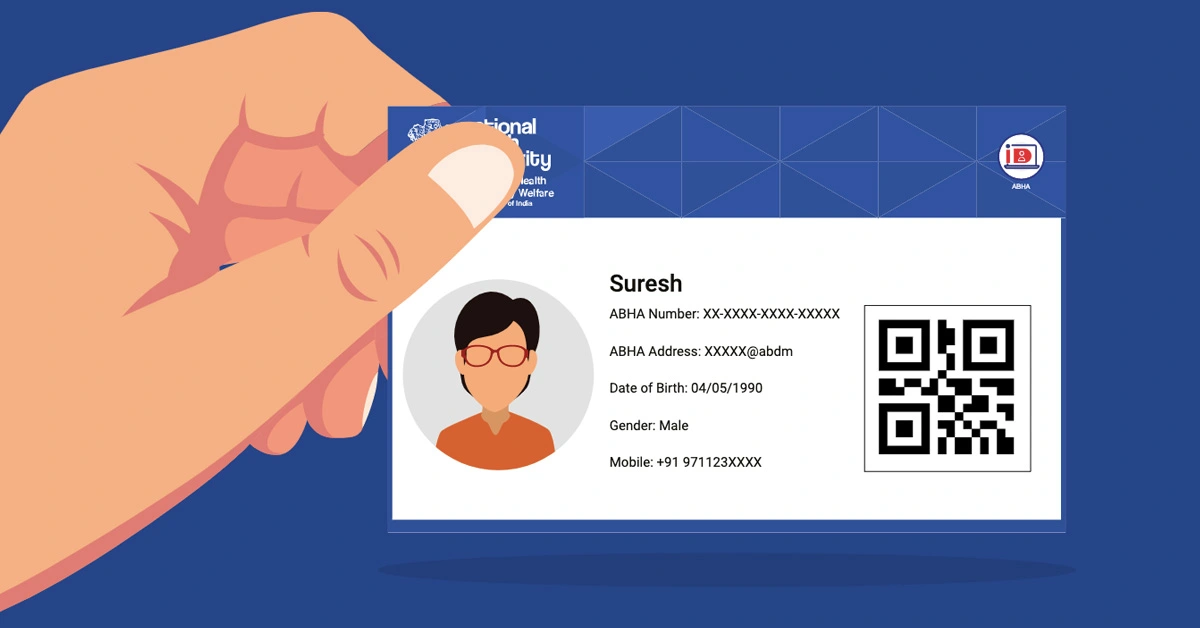The healthcare sector in India is evolving rapidly, with digitisation playing a crucial role in making medical services more accessible and efficient. One of the most significant advancements in this space is the introduction of the ABHA card, which allows individuals to store and manage their health records digitally. ABHA, or Ayushman Bharat Health Account, is an initiative under the Ayushman Bharat Digital Mission (ABDM) aimed at creating a seamless digital health infrastructure for Indian citizens. By completing ABHA card registration, individuals can access, share, and manage their medical history with ease, ensuring better healthcare outcomes.
This article explores the benefits of ABHA card registration and how it helps individuals access digitised healthcare records effortlessly.
Understanding the ABHA card
The ABHA card is a unique digital health ID that stores an individual’s medical history, prescriptions, test results, and doctor consultations in a secure online system. It eliminates the need for physical documents and ensures that medical information is readily available whenever required. The card is linked to a secure digital system, allowing healthcare providers to access accurate patient information for better diagnosis and treatment.
Benefits of ABHA card registration
Easy access to healthcare records
One of the biggest advantages of ABHA card registration is the ability to store and retrieve medical records in a digital format. Individuals no longer need to carry physical reports or prescriptions, as all their health information is stored securely in their digital health account. This is particularly useful for those who require regular medical check-ups or have chronic conditions that need ongoing treatment.
Seamless sharing of medical history
With an ABHA card, individuals can share their medical history with doctors, hospitals, and diagnostic centres without the hassle of carrying hard copies. This ensures that healthcare providers have access to complete and accurate patient records, leading to better diagnosis and treatment. The ability to share records digitally also reduces errors and misinterpretations caused by missing or incomplete medical history.
Secure and private healthcare data management
The ABHA card provides a highly secure digital platform where individuals can store their medical records while maintaining full control over their data. Users can decide who gets access to their information and for how long, ensuring that their privacy is protected. The system follows strict security protocols, preventing unauthorised access to sensitive health data.
Reduced dependency on physical documents
Many individuals struggle with maintaining and organising physical health records, especially when dealing with multiple doctors or hospitals. ABHA card registration eliminates this issue by digitising medical records, making it easier to access past prescriptions, test results, and treatment history at any time. This also reduces the risk of losing important medical documents.
Better coordination among healthcare providers
The ABHA card helps in creating a connected healthcare ecosystem where doctors, hospitals, pharmacies, and diagnostic centres can collaborate efficiently. With access to a patient’s complete medical history, healthcare providers can offer personalised treatment plans and avoid unnecessary repeat tests or incorrect prescriptions. This ensures better healthcare management and improved patient outcomes.
Faster medical assistance during emergencies
In emergency situations, having access to complete medical records can be lifesaving. If an individual is unconscious or unable to communicate, doctors can use the ABHA card to access their medical history, allergies, past surgeries, and current medications. This helps in making informed decisions quickly, ensuring timely and effective treatment.
Access to government healthcare schemes
The ABHA card also allows individuals to link their health ID with government healthcare schemes such as Ayushman Bharat Pradhan Mantri Jan Arogya Yojana (PM-JAY). This makes it easier to avail of cashless treatment at empanelled hospitals and track eligibility for healthcare benefits under government programmes.
Cost savings on healthcare services
With accurate medical history available digitally, individuals can avoid unnecessary diagnostic tests and repeated doctor visits. This helps in reducing healthcare costs by ensuring that doctors have complete patient information before recommending further tests or treatments. Digitised healthcare records also minimise administrative costs for hospitals and clinics, leading to more efficient medical services.
Personalised healthcare experience
The ABHA card enables healthcare providers to offer customised treatment plans based on an individual’s medical history and previous treatments. This is particularly beneficial for individuals with chronic illnesses such as diabetes, heart disease, and hypertension, as doctors can track their progress and suggest the best course of action without needing to rely on verbal information.
Nationwide accessibility of healthcare records
Since the ABHA card is a digital health ID, individuals can access their medical records from anywhere in the country. Whether consulting a doctor in a different city or seeking treatment at a new hospital, individuals can share their medical data seamlessly without needing to carry old reports. This is especially useful for frequent travellers, students, and professionals working away from their hometowns.
How to complete ABHA card registration
Step 1: Visit the official ABHA website
Individuals can start the registration process by visiting the official Ayushman Bharat Digital Mission website or using the mobile app provided by ABDM.
Step 2: Enter Aadhaar or mobile number
To create an ABHA card, users need to enter their Aadhaar number or mobile number for verification. This helps in linking their digital health ID with existing government records.
Step 3: Provide necessary details
Users must fill in basic personal information such as name, date of birth, gender, and contact details. This ensures accurate identification within the digital health ecosystem.
Step 4: Generate ABHA number
Once the registration process is complete, the system generates a unique ABHA number, which acts as the individual’s digital health ID. This number can be used to access and share healthcare records securely.
Step 5: Link medical records
After obtaining the ABHA card, individuals can start linking their medical records, prescriptions, and lab reports to their digital health account. This ensures that all past and future medical information is available in one place.
Why ABHA card registration is important in 2025
With the increasing focus on digital healthcare services in India, ABHA card registration is becoming an essential step towards a more efficient and accessible healthcare system. The Indian government is actively promoting digital health initiatives, ensuring that medical services are seamlessly integrated across hospitals and clinics. As more healthcare providers adopt digital records, having an ABHA card will become a necessity for availing of quality medical care.
Conclusion
ABHA card registration offers numerous benefits, making it easier for individuals to manage their healthcare records digitally. From secure data storage and seamless sharing of medical history to faster emergency care and access to government healthcare schemes, the ABHA card simplifies healthcare management for people across India. As the country moves towards a digital-first healthcare system, registering for an ABHA card is a smart step towards better medical care and improved health outcomes. By adopting digitised healthcare records, individuals can ensure a smoother and more efficient healthcare experience for themselves and their families.



